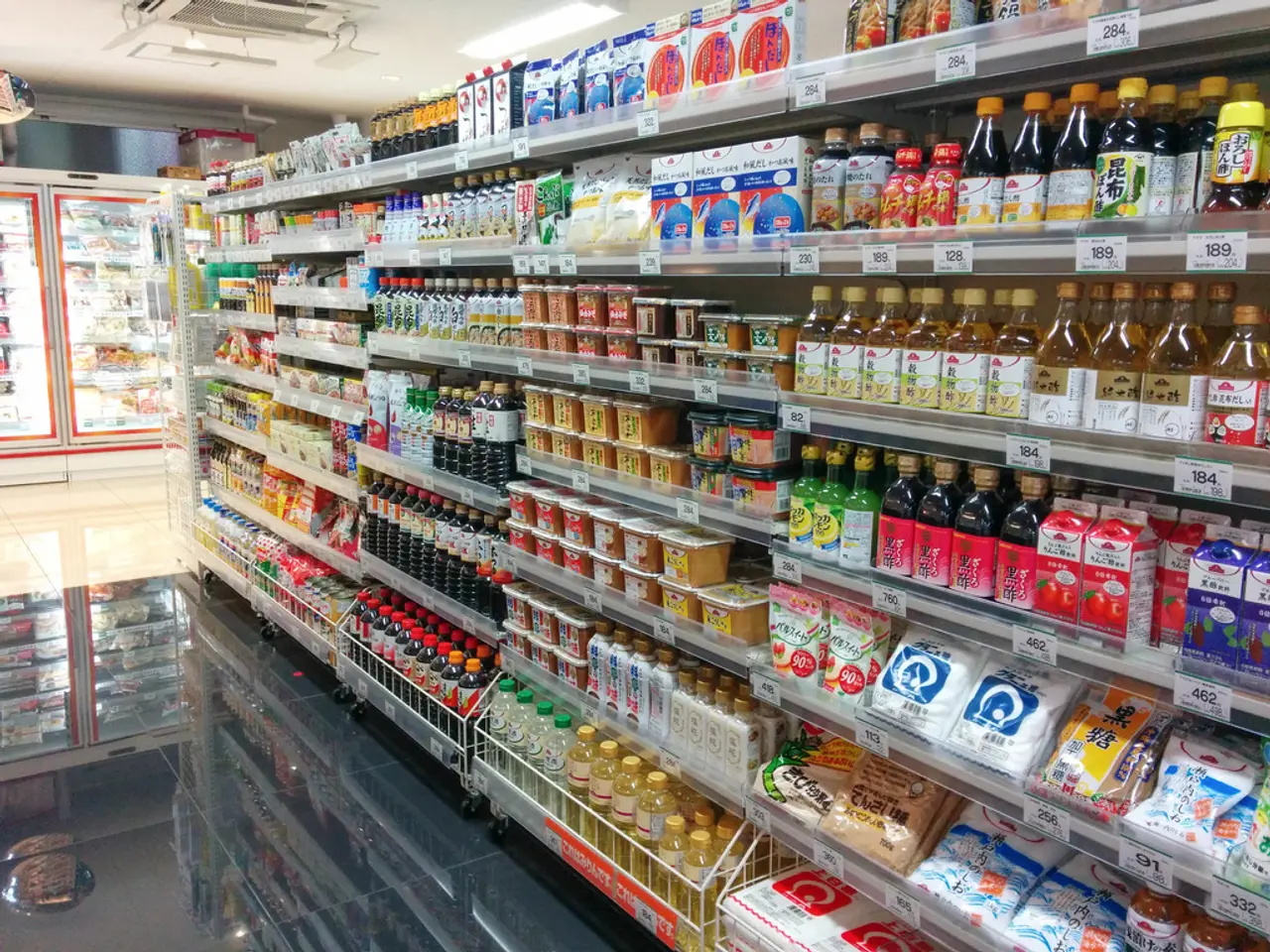Sandals and Health Shoes by Birkenstock Got More Expensive: Why and How They're Dealing with US Tariffs
Birkenstock imposes tariff charges onto consumers
In a bit of bad news for footwear enthusiasts, Birkenstock, the popular sandal and wellness shoe manufacturer, has decided to raise prices worldwide to counterbalance the impact of US tariffs. Ivica Kroloin, the company's CFO, revealed this move to Reuters, stating, "We will fully absorb the impacts of the current tariffs through price increases."
This isn't a localized hike but a global response to the tariffs. Kroloin clarified, "We're not just raising prices in one region, but treating this as a global measure." The global footwear giant anticipates further complications resulting from the ongoing US-EU trade dispute. Yet, Birkenstock's advantage lies in its non-reliance on Asian sources for materials.
Despite the unfavorable market conditions, Birkenstock's shoes have managed to surpass expectations, especially in the recent quarter. Thanks to booming demand and satisfied customers, the company believes it will reach the higher end of its revenue growth target of 15 to 17 percent for the year. The target for adjusted operating profit margin (Ebitda margin) has been bumped up to 31.3 to 31.8 percent, equivalent to an adjusted Ebitda of €660 million to €670 million.
The lingering US import tariffs, imposed by President Donald Trump, have had an apparent impact on Birkenstock's operations. However, Oliver Reichert, CEO of Birkenstock, maintains a positive outlook, considering the company to be in an "enviable position" with its product pricing strategy.
In Q2 of the 2024/25 fiscal year, Birkenstock's revenue surged by nearly one-fifth to €574 million, and profit jumped 47 percent to €105 million. This growth can be attributed to the brand's unique positioning and its ability to maintain its appeal despite the tariffs.
As for the prospect of a higher tariff rate (20%), Birkenstock is not contemplating a manufacturing shift to the US. Instead, they plan to focus on reinforcing global price adjustments and enhancing internal efficiency to further mitigate the effects of the tariffs. The price increases are projected to kick off in the last quarter of the year, spanning from July to September.
[1] Birkenstock aims to counterbalance the costs of the 10% US tariff on EU-made goods through global price adjustments and internal efficiency improvements.
[2] The tariff uncertainty and the possibility of a 20% tariff rate have not deterred Birkenstock from capitalizing on strong demand for its products.
[3] The global pricing strategy is Birkenstock's response to the US import tariffs, with the price hikes expected to be implemented starting from Q4 this year.
Source: ntv.de
Additional Insights: * Birkenstock plans to improve production efficiency and reduce costs to further counterbalance the effects of the tariffs. * The company is not considering manufacturing in the US as a means of circumventing the tariffs and instead remains focused on tightening its supply chain and optimizing pricing strategy globally.
- Due to the 10% US tariff on EU goods, Birkenstock is addressing the rising costs through a global approach, which includes price adjustments and internal efficiency improvements in their business strategy.
- Despite the uncertainty surrounding potential tariff rate increases and the ongoing trade dispute, Birkenstock is capitalizing on the strong demand for their products, taking a strategic approach to global pricing for vocational training and industry in various financial aspects of the community policy and business.








